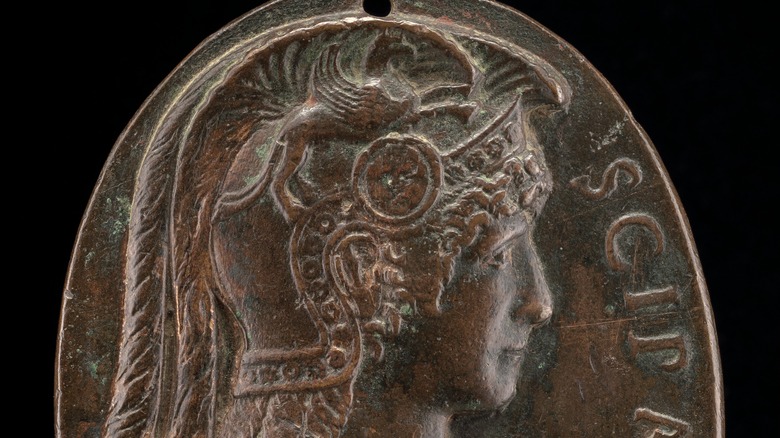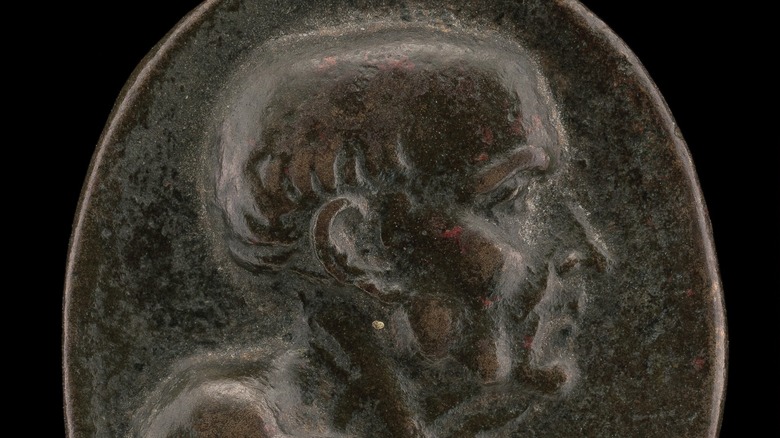Why Roman General Scipio Africanus Was Exiled From Rome
The Second-Punic War represented one of the greatest threats to the Roman Republic in centuries. In 216 B.C., Carthaginian general Hannibal marched his army from Spain to Italy through the Alps, advancing rapidly until he neared Rome itself. After his forces defeated a Roman army nearly twice the size of his own at Cannae, he laid siege to the city. Apocalyptic panic swept across the Roman public, and it wasn't until Hannibal was turned away by resource shortages that normal life began to resume (via HIstoryNet).
The one man that definitively ended the war was Publius Scipio, who in the span of nine years went from driving them out of their holdings in Iberia to besieging Carthage itself. Scipio defeated Hannibal in 201 B.C., forcing Carthage to surrender and earning Scipio the moniker of "Africanus" (via The Latin Library). Scipio's popularity allowed him to be elected consul in 205 B.C., and his victory led to his name becoming immortalized in Rome. Yet despite this fame, in his later years, Scipio faced exile from politics due to accusations that he collaborated with Rome's enemies.
Slander forced Publius Scipio into exile
Marcus Cato was one of Publius Scipio's biggest political foes, in spite of the former having been the greatest proponent of war against Carthage. According to Britannica, Cato's hatred of the general was at least in part brought on by his opposition to Greek Hellenism (or any other outside culture), the influence of which he saw as too indulgent to be compatible with Roman society. Given both the Scipio family's support of Hellenism and Scipio himself living a luxurious lifestyle after the war, Cato likely saw him as the embodiment of all that would end the virtue of Rome (via DailyHistory). For Cato, the opportunity to end his rival's political career came in the form of the Seleucid invasion of Greece.
King Antiochus III's army was ultimately turned back by Rome's legions, but for Scipio, the Roman-Seleucid war was the end of his career. At home, Cato framed both his initial refusal to consider the possibility of invasion and his lackluster peace terms with the Seleucids as evidence that Scipio accepted bribes from the enemy. No punishment came, but the accusations were enough to destroy any influence Scipio had. For the rest of his life, Rome's then-greatest conqueror tended to the land of his villa away from politics (via The Collector).

